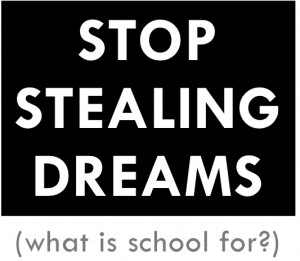curriculum EFL eikaiwa ES evaluation expectations kids language courses Language learning school management teaching testing theory university
by sendaiben
2 comments
English teachers aren’t really teachers, are they?
This is something I have been thinking about for a while now.
I was just drafting this post when I saw this link by Steve ‘the Linguist’ Kaufmann (NB: I started writing this post three months ago).
I’m not sure that we EFL teachers are actually teachers.
After all, we are in charge of helping learners become proficient in a language. I see this as a skill to be practiced rather than a set of knowledge to be taught. I have always compared language learning to sports, and described what learners should be doing in terms of practice and training. The sports analogy seems to work very well:
1. some people are naturally better at sports/languages than others
2. anyone can get better at sports /languages through practice
3. formally studying sports/languages is of limited use on its own, although it can help if done in conjunction with practice
4. being good at one sport/language will often help you with another one
5. if you want to get better at a sport/language, you should aim to do meaningful practice every day
6. training equipment will help you improve at a sport/language, but is no substitute for practice
7. drills can be helpful, but you also need to practice under realistic conditions if you want to get better at a sport/language
You can probably make similar analogies to playing a musical instrument, or producing art.
The point is, if we are coaches rather than teachers, don’t we need to re-examine our teaching situation?
Are formal classes, exams, class assignments, and grades appropriate ways to help our students master the skill of English language use (as opposed to the academic equivalent knowledge), or are they actually counter-productive?
Now, most of us are restrained by our work situations: we can’t abolish classes or grades, but perhaps there is some way we can change our classes to make them more practical. I’ll be thinking about that in the new academic year, starting in April here in Japan.
blogging curriculum EFL evaluation expectations Language learning teaching testing theory
by sendaiben
leave a comment
Are we stealing dreams?
Seth Godin, who is an internet/new media/publishing/idea guru, just published a manifesto aimed at starting (or continuing) a conversation about the future of education. Very much in the same vein as Ken Robinson’s famous TED talk on the same subject, Stop Stealing Dreams (what is school for?) is a 30,000 word ebook that is currently available for free. Based on his previous work, it’s probably worth your time.
curriculum EFL evaluation expectations extensive listening extensive reading university vocabulary
by sendaiben
leave a comment
The shock of sudden realization…
I was having an imaginary conversation with my boss the other day (something that happens a bit too frequently, perhaps), and had just finished telling him what a ridiculous concept it was to judge the performance, impact, or value of a teacher by the amount of time they spent at work when I had a huge revelation.
That is precisely how I evaluate some of my students!
Particularly for extensive reading, vocabulary study (using online tools such as the Word Engine), and listening, I tend to look at how much time students spent doing an activity, rather than how effectively they did so. The student that spends twenty minutes intensely focused on the task will fare worse than the one who sits there daydreaming for an hour, even though they probably got much more out of it.
In my defense, the main reason for this is that it is fairly difficult to evaluate how effectively someone has, for instance, read something, but it is also down to laziness on my part. Just as it would be ridiculous for my boss to judge my performance solely by how long I spent sitting in my office, I need to start thinking about how to assess my students in a fairer and more accurate way.
Part of it, I suspect, is going to depend on me giving up on being a teacher (look out for a post on this next week!).
How about you? Do you evaluate students based on their presence rather than their engagement?


